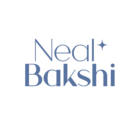“What’s Next?”
This question has come up in a number of coaching calls I’ve had over the past week. The coachee would ask themselves the semi-rhetorical question, “what’s next?” in regards to the next chapter in their life.
Personally, I resonate with this question deeply which is why it sticks out so much to me when others ask it of themselves.
After I graduated from NYU and got my first job at Lloyds Banking Group, I was determined to work my way up in the finance world. Lloyds Bank was a UK Corporate Bank, and my vision was to move into investment banking and be at the top of my game. After all, my dream as a kid was to run my own investment bank – Bakshi Bucks.
After a year and a half at Lloyds, I started working with headhunters to find a role in investment banking. One headhunter explicitly told me, “You need to be realistic, it’s not like you’re going to go from a Tier 4 bank at Lloyds to a place like Goldman Sachs.” This stung and part of me just accepted that statement as fact. The headhunter proceeded to set me up with interviews at other boutique investment banks, leaving out the big bulge bracket banks like JP Morgan, Morgan Stanley, and of course, Goldman Sachs.
A couple months later, I got a call from my college fraternity pledge brother who worked at Goldman. He himself made his way from Compliance into front-office Investment Banking at the firm. I distinctly remember the call where he said, “So an analyst just left on the Leveraged Finance Capital Markets & Syndicate desk – are you interested in the role?”
I had no idea what that jumble of words meant at the time, nor what the job function truly entailed, but this was Goldman Sachs – the poster child of Wall Street and Investment Banking.
Landing a job at Goldman is the holy grail of what all economics and business majors around the globe strive for. It was even harder to get a job at Goldman Sachs than it was to get into Harvard, Yale, or Princeton, with the bank accepting just 4% of applicants.
After 19 interviews and three in-person superdays that spanned nearly two months, I finally got the offer.
I remember looking out over the beautiful New York City skyline down to the Financial District on my last day at Lloyds. The question I asked myself sticks out like a bright yellow Post-It note in my mind, “What’s next?”
I genuinely had no idea. I was stepping into a place where I would be skyrocketed to the heights of the financial world if I continued to work hard, give it my all, and perform. I was trying to think years ahead and map out my path towards success.
Just as with the duality of life, there is a seeming duality within the question “What’s Next?”
It’s a powerful question that has a number of purposes. For one, it prevents you from falling into complacency or stagnation by always keeping your eyes forward-directed with specificity on a goal or outcome.
However, oftentimes, we ask ourselves the question “What’s next?” when we truly don’t know the answer to what’s next. Similar to how I had no idea what my next step would be after being propelled to the top ranked investment bank on Wall Street.
The world we live in today is so “go-go-go.” For many, the extracurriculars to get you into college begin when you’re in elementary school. Universities are recruiting athletes at 14 years old, and success is measured by the number in your bank account, employer on your LinkedIn, or home zip code.
The external stimuli are incessant. If we’re not thinking 5, 10, 15 years ahead, we think we’re going to be left behind when the Success Bus departs with our friends and family.
The duality within the question, “what’s next?” can allow you to maintain a motivated vision for the future. But on the other hand, it can also take you out of the present moment entirely.
This is where I believe the word balance comes into play. Lao Tzu, author of the Tao Te Ching talks about the Middle Way. This is a reference to living life away from either myopic extreme in the physical, emotional, or spiritual continuum. By doing so, you are able to see things for what they are and mindfully perform your daily tasks to lead you on your journey.
A beautiful quote from Lao Tzu as it relates to this is that “nature does not hurry, yet everything is accomplished.”
So if you find yourself asking the question, “what’s next?”, There are a few things that can be done.
- Think about what your long-term vision is, make it clear and specific.
- After you do that, bring yourself back into the here and now by focusing on the tasks at hand directly in front of you.
Both of these things will keep your balance between happiness in the now and vision for the future.
If you’re still unclear on the next steps or what to do, I know a great certified life coach who can help.
Reach out to me here or schedule a free calendly meeting with me and we can talk about your goals, dreams, definition of success, and how to get you there.
